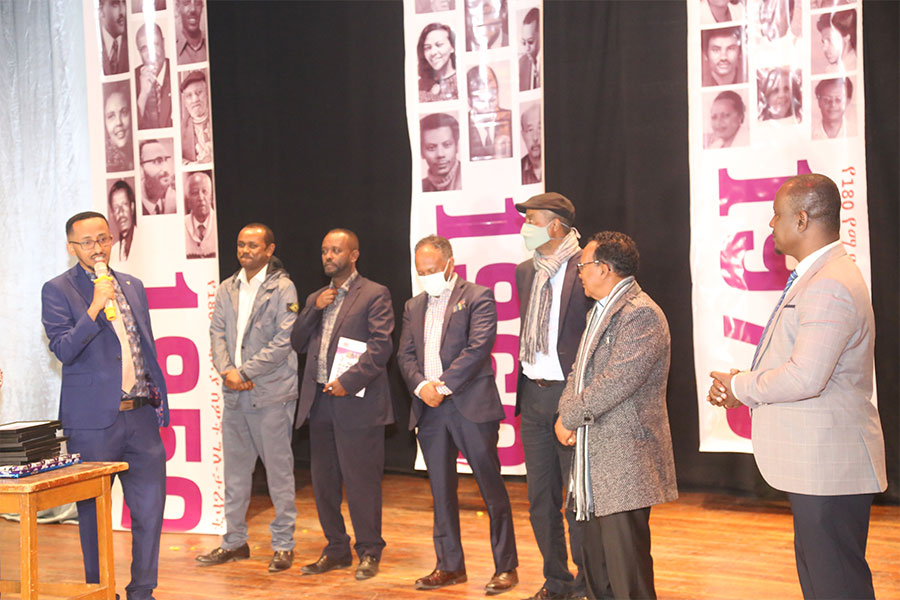
Radar | Jan 09,2024
I once had to go to a skin care product and treatment centre to look for a specific product for a friend. A simple quest for sunscreen led to unsolicited offers for skincare and laser treatments for the mole I never considered as an anomaly. I believe the incessant persuasion was unnecessary and irrelevant. But judging from the persuasive power and allegedly purported mastery of subject matter knowledge by the skin care professionals, I would not be surprised if people succumbed to the request.
The relentless pressure to conform to an externally imposed standard overshadows our appreciation for uniqueness. This is why an 85-year-old Harvard University Medical School study that has recently resurfaced through CNBC stands out for its enduring relevance. Conducted in 1938, the research set out on a decade-long quest to unravel the mysteries of human happiness and longevity.
The researchers collected health records from over 700 subjects worldwide, embarking on an unprecedented journey to decode the essence of a fulfilling life. The revelations are striking and challenge the very fabric of modern beliefs. It depicts that the core of our existence lies in positive relationships. Our connections with others truly matter; contrary to the prevailing zeitgeist that usually dictates career achievements, financial success, exercise regimens and dietary plans as the gateways to a long and happy life.
As various industries push the self-care agenda, an overwhelming flood of information leaves us with a pervasive sense of inadequacy, the study prompts us to reconsider our priorities. The emphasis on physical fitness, career development, life coaching, and motivational speaking has created a cacophony of messages, making us vulnerable targets in the information war waged by those with a vested interest.
Fitness enthusiasts meticulously monitor their body measurements, while those dedicated to physical appearance agonise over meal choices and diet plans, sometimes depriving themselves of essential nutrients. Individuals immersed in the pursuit of longevity monitor blood pressure, and sugar levels, and adhere to stringent lifestyles. Teenagers find themselves consumed by concerns about their looks, succumbing to societal pressures to conform to an unrealistic standard of beauty.
Despite the extraordinary lengths people go to better facets of their lives, the genuine pursuit of happiness remains elusive. The study directs our attention to a concept it terms "Social Fitness" — an aspect of our lives that seems to resonate universally. It delves into seven fundamental attributes that form the pillars: Safety and Security, Learning and Growth, Emotional Closeness and Confiding, Identity Affirmation and Shared Experience, Romantic Intimacy, Informational and Practical Help, and Fun and Relaxation. By plotting these attributes against the important people in our lives, the study encourages us to take stock of our relationships and acknowledge those who contribute to them.
The seven attributes serve as a roadmap for navigating our relational lives, guiding us towards building connections that encompass safety, growth, emotional closeness and enjoyment, in a world bombarded with self-help and seemingly foolproof prescriptions for success.
Inspired by this approach, I conducted a personal inventory, listing close family members, colleagues, friends and non-human elements like hobbies and activities. The results revealed the extent to which certain individuals and activities fulfilled my social needs. This simple yet profound act of introspection underscored the importance of positive relationships in shaping lives.
Humans are inherently social creatures, unable to fulfil all their needs in isolation. It urges us to assess our "Social Fitness," prompting an honest evaluation of where we invest our time and whether we are nurturing connections that contribute to our well-being.
Cultures place a premium on strong social bonds. In Ethiopia, communal institutions such as Idir, Equb and social gatherings exemplify the collective support that has sustained communities for centuries. They pool resources to address mourning, financial, and spiritual needs, demonstrating the strength of interconnectedness. However, the relentless march of globalisation and urbanisation threatens to erode these traditional values. The balance between individualism and collective support becomes precarious in the race towards modernity.
Urban life, characterised by its fast pace and impersonality, isolates individuals even nearby. The resonance becomes particularly poignant in the context of a world increasingly dominated by technology. While it connects us virtually, technology paradoxically contributes to the erosion of face-to-face meetups. The demands of daily life, coupled with the increasing reliance on technology for communication, create a scenario where we may be physically close but emotionally distant.
Pausing and assessing our Social Fitness raises questions about the trajectory of our modern lives. Are we neglecting the core elements that contribute to a meaningful and enduring existence? Are we losing sight of what truly matters?
The study's call for an honest evaluation of our relationships prompts a reflective journey into human connection. It challenges us to prioritise meaningful interactions and invest time and effort into relationships that contribute positively.
In an era dominated by external pressures and self-centric goals, it serves as a timeless guide, pointing us towards the enduring truth; the pursuit of a long and happy life is linked to the quality of our relationships.
Being honest with ourselves about where we devote our time is a powerful call. It prompts us to reevaluate our priorities, redirecting our attention from seemingly inconsequential pursuits to the relationships that significantly contribute to our wholeness.
PUBLISHED ON
Feb 10,2024 [ VOL
24 , NO
1241]


Radar | Jan 09,2024

In-Picture | Feb 17,2024

Viewpoints | Sep 10,2023

Fortune News | May 11,2025

In-Picture | Aug 04,2024

View From Arada | Sep 03,2022

Commentaries | Aug 01,2020

Radar | Aug 13,2022

Sunday with Eden | May 31,2025

Exclusive Interviews | Jan 24,2023

Dec 22 , 2024 . By TIZITA SHEWAFERAW
Charged with transforming colossal state-owned enterprises into modern and competitiv...

Aug 18 , 2024 . By AKSAH ITALO
Although predictable Yonas Zerihun's job in the ride-hailing service is not immune to...

Jul 28 , 2024 . By TIZITA SHEWAFERAW
Unhabitual, perhaps too many, Samuel Gebreyohannes, 38, used to occasionally enjoy a couple of beers at breakfast. However, he recently swit...

Jul 13 , 2024 . By AKSAH ITALO
Investors who rely on tractors, trucks, and field vehicles for commuting, transporting commodities, and f...

Jun 28 , 2025
Meseret Damtie, the assertive auditor general, has never been shy about naming names...

Jun 21 , 2025
A well-worn adage says, “Budget is not destiny, but it is direction.” Examining t...

Jun 14 , 2025
Yet again, the Horn of Africa is bracing for trouble. A region already frayed by wars...

Jun 7 , 2025
Few promises shine brighter in Addis Abeba than the pledge of a roof for every family...